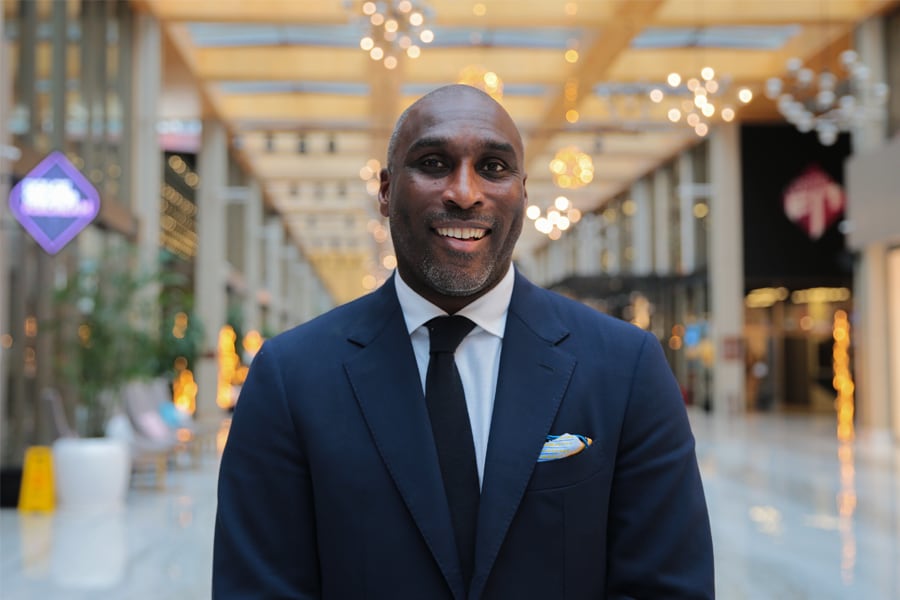
Don't fall on the first hurdle: Sol Campbell
Former England and Arsenal star on how to evolve as a leader and his secret to longevity
 "The continuation of being a great performer allowed my voice to come through, to lead and listen at the right times", says Sol Campbell. Image: Orhan Cicek/Anadolu Agency via Getty Images
"The continuation of being a great performer allowed my voice to come through, to lead and listen at the right times", says Sol Campbell. Image: Orhan Cicek/Anadolu Agency via Getty Images
Sol Campbell knows a thing or two about leadership. In 1998, when he was 23, the strapping central defender became the captain of the national team, then the second youngest after Bobby Moore. For years, he survived the rigours of international football with elan, representing England in six consecutive major championships—from the 1996 Euro to the 2006 FIFA World Cup. He also played in the Premier League for 20 years, was a part of the legendary Arsenal Invincibles that remained undefeated in the PL through the 2003-04 season, and later captained Portsmouth to an FA Cup win. An expert on Sports18 and JioCinema's FIFA World Cup coverage panel, Campbell sat down for an exclusive one-on-one with Forbes India. Edited excerpts:
‘Look around you and learn’
I’ve learnt a lot from the people around me, most notably my father, one of my coaches back when I was 14 and Gary Mabbutt, the Tottenham Hotspur captain in the late 80s and early 90s. My father was upright in the difficult time in the 60s and 70s, my coach was responsible for bringing out who I was. And Gary was this lovely fellow who was diabetic and had to do an immense amount of stuff just to be able to play football—he had to take samples before and during halftime, check on the metre and make sure his sugar levels are okay. And he had to do it every day, during training and matches. Gary was a quiet guy, but through this, he showed me the character that you need to be a leader. And also through his ability to stay calm when everyone else was losing their head, because, to be a leader, you have to stay focused through the chaos.
‘The best leadership style is evolutionary’
I was one of the youngest captains of the English football team and have also led Portsmouth to an FA Cup win. But my leadership style has evolved constantly. Those poised to be leaders start by observing how other people lead and when they come of age, they take a little bit of what they’ve seen, add some personal attributes and put away some. That eventually gives shape to one’s leadership style—no one has everything, to begin with. When I began, I wasn’t an in-your-face leader, but I became a different leader as I grew older. Performance, of course, gave me the confidence that I could do this, the continuation of being a great performer allowed my voice to come through, to lead and listen at the right times. And then experience takes you along, making you learn from mistakes.
‘Don’t fall on the first hurdle’
Your leadership style might not suit everyone. There might be others who want to take your leadership spot. And you've got to show them who you are. Once, a manager, who had come in, wanted to replace me as the captain, and I put my foot down and said, "No, I am going to stay the captain." That's another aspect of being a leader, where you have to understand the political dynamics, yet stay focused and let all the noise die away. Don't fall on the first hurdle, stay the course, and let others fall off. You just stay focused and get the performances in, because, eventually, the noise dies away.
Photo essay: Mizoram and its unparalleled passion for football








